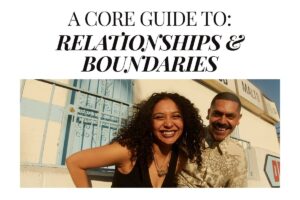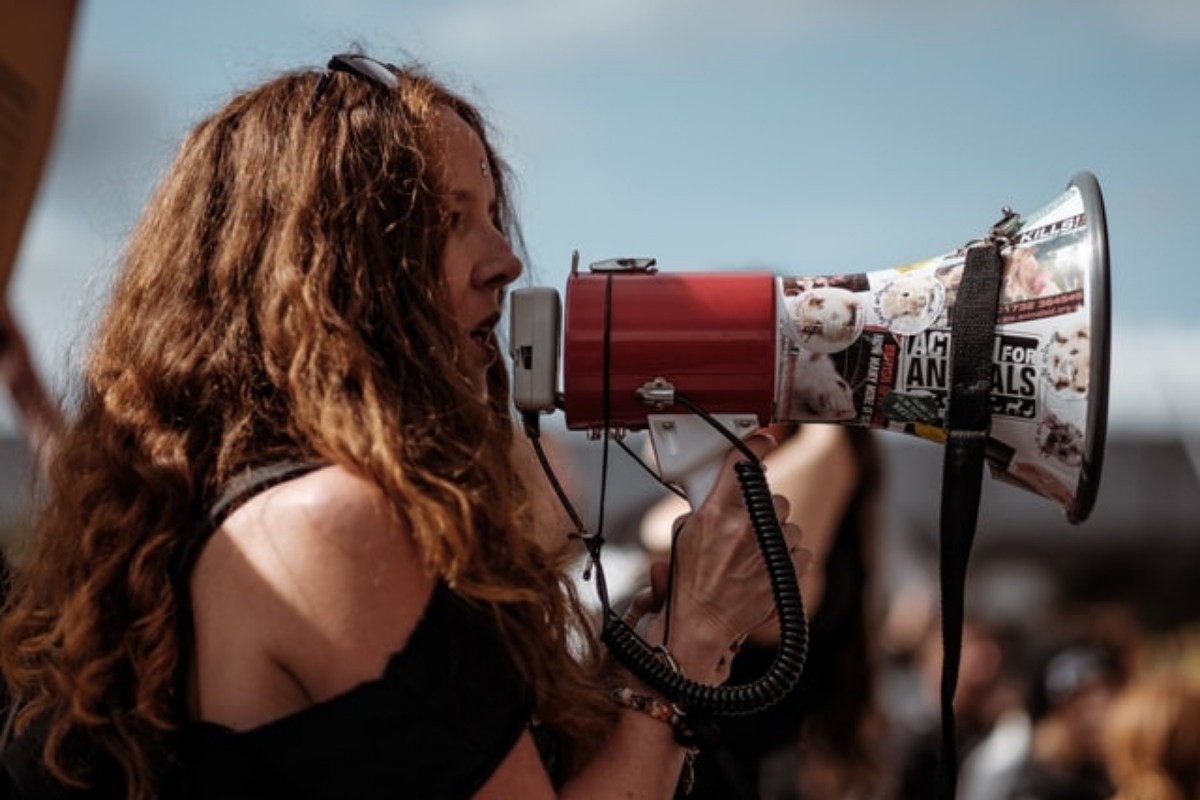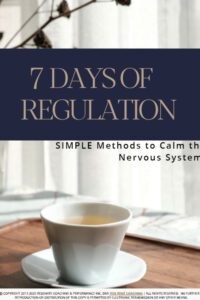Healthy Boundaries in Relationships. You’ve found a Foundation Guide to Relationships & Boundaries, here to create trust and authentic connection.

Your cornerstone guide to healthy boundaries, practical steps to end people-pleasing and create relationships built on trust.
Boundaries are the sanity-savers that keep love intact & leave behind the overload.
Skip the boundaries and suddenly you’re saying ‘yes’ to everything, overthinking on auto-pilot, and lugging around everyone else’s baggage until you’re wiped out.
If you’ve ever said yes when you wanted to say no, or stayed awake replaying a conversation in your mind, you’ve felt the weight of unclear boundaries. What’s important to know is this: you’re not broken. You’re patterned. And those patterns can be reshaped.
Boundaries don’t push people away, they connect us in ways that are honest, sustainable, and freeing.

Boundaries begin with the courage to speak your truth.
Table of Contents
What Boundaries in Relationships Really Are (and Aren’t)

When different preferences are respected, love blossoms.
“Why do I put everyone else first?”
Boundaries are a form of self-protection. They form in early attachment through family dynamics. When we learn as children that love or approval depends on compliance, our nervous system wires itself to equate saying “no” with potential loss.
People who struggle saying ‘no‘ often feel responsible for, or are afraid to disappoint others. They aren’t damaged or ‘weak,’ their brains are simply primed to avoid conflict at all costs.
Recognising this wiring helps take the shame out of people-pleasing: it’s not a flaw, but a learned survival response.
Boundaries are not about shutting people out, they’re about showing up more authentically & fully YOU. A boundary is the line where you end and another person begins.
They allow you to be clear about your needs without losing respect for theirs. Far from being cold or harsh, boundaries create a foundation where love, respect, and mutual care can thrive.
Without boundaries, you may feel a sense of neglect or that you are left out or not considered in relationships.
You take responsibility for feelings that aren’t yours, or allow behaviour that leaves you drained. With boundaries, there is respect. Both people know what’s okay and what isn’t.
A healthy boundary in relationships sounds like:
-
“I can’t talk tonight, but I’d love to call tomorrow.”
-
“I care about you, and I’m not able to solve this for you.”
-
“I want to join, but I need to leave after an hour.”
Boundaries make room for honesty. Without them, resentment builds under the surface.
Practical Tip: Write down three areas of your life where you feel drained maybe it’s family calls, work tasks, or friendships. Then write one small limit you could place in each. Start tiny: maybe it’s ending a call after 15 minutes instead of an hour.
Why Healthy Boundaries in Relationships feel hard to set

Our old lenses, schemas, shape how we see boundaries until we choose a new view.
If boundaries are natural, why do so many of us find them impossible to practise? The truth is that setting limits goes against some of our deepest wiring. As children our nervous systems learned what kept us safe was conflict avoidance, approval, compliance, or silence.
The body stores those lessons even if the mind can’t remember them. So when you try to speak up today, you may feel fear, guilt, or dread, even when logically you know you’re doing the right thing. It isn’t weakness it’s old survival programming still running the show.
As children, we learn unconscious beliefs that support our survival. Growing up, if love felt conditional, you may have learned the following…
Conditions for Survival:
-
“If I keep everyone happy, I’ll be safe.”
-
“If I stay quiet, I won’t be abandoned.”
-
“If I never make mistakes, I’ll be loved.”
“Before working with Tess, I didn’t even realise how much of my life was run by guilt and obligation. I was constantly saying yes when I wanted to say no. Tess helped me see where those patterns started and gave me tools to finally untangle myself. I feel more like my own person now.” — Anne S.
These beliefs live deep in the nervous system. Saying “no” doesn’t just feel uncomfortable it can feel dangerous. Your heart races. Your chest tightens. Your mind floods with guilt.
In reality, your nervous system is doing its job but it’s radar for danger is outdated. As an adult, you no longer need to earn safety through over-accommodation.
“How do I say no without feeling guilty?”
Action Step: Before setting a healthy boundary, pause. Place your hand on your chest, breathe deeply, and tell yourself: “I am safe now.” Calming your body helps you act from truth instead of fear.
Fear can keep us from setting healthy boundaries. Learning to set them builds resilience to form a new kind of relationship with others.
The Cost of Ignoring Boundaries in Relationships

Unspoken boundaries create silent tension, clarity invites ease.
At first glance, people-pleasing looks generous. Friends and colleagues may even praise you for being kind, dependable, and selfless. But what they don’t see is the exhaustion underneath the way you sacrifice sleep, needs, and personal peace to keep everyone else comfortable.
Over time, this pattern leads not just to stress but to a slow erosion of self-worth. When your energy always flows outward, it sends your unconscious mind the message: “My needs don’t matter as much as others.”
On the surface, people-pleasing looks kind. You’re reliable and praised for being helpful. But over time, it takes a toll:
-
Burnout. You give until you collapse.
-
Resentment. You begin to feel unseen and unappreciated.
-
Disconnection. You lose track of your own wants and needs.
Over-helping is a way of avoiding the fear of rejection. It’s easier to fix someone else’s fire than to tend your own. But this avoidance comes at a cost: you begin to believe your needs don’t matter & you experience underlying stress you can’t quite pin-point the origin of.
“I used to think setting boundaries was selfish. Now I see it as one of the kindest things I can do — for me and for my relationships. Tess guided me to set limits without shutting people out, and it’s changed the way I show up at work and at home.” — Christine S.
Silent Stress of Boundary Gaps:
Studies on chronic stress reveal that suppressing your own needs in relationships activates the same stress pathways as physical danger.
Over time, this pattern doesn’t just impact mood it can also lead to physical exhaustion, burnout, and weakened immune function.
The “cost” of people-pleasing is often invisible at first. It shows up as fatigue, resentment, or disconnection from one’s own values. Because the pattern comes from an unconscious desire for safety, we don’t connect the dots between the pattern and the symptoms it’s producing.
The good news? Identifying these costs early is one of the strongest motivators for real change.
Practical Tip: Next time someone asks for help, pause before answering. Ask yourself: “Am I saying yes from generosity, or from fear?” Even a moment of reflection can shift the pattern.
→ A Gift For You
Soothe your nervous system with this free 7-day guide with simple daily practices to help you feel calmer and more in control.
“Tess taught me how to say ‘no’ without fear or resentment. I don’t brace for conflict or need everyone to agree now!” — Larissa M.
Courageous Healthy Boundaries in Relationships

Courageous boundaries make space for joy, freedom, and self-expression.
We imagine courage as a grand act: standing up to a crowd, winning an argument, or being unshakably strong. But real courage in relationships is quieter.
It’s being aligned with yourself even when it’s uncomfortable.
You show courage when you admit vulnerability, say no without explaining, and let others feel disappointed without rescuing them.
This is the courage it takes to step into your agency:
-
Courage is telling the truth, even when your voice shakes.
-
Courage is saying no when you fear rejection.
-
Courage is choosing compassion instead of control.
-
Courage is allowing others to have their feelings without fixing them.
“Why do I always put everyone else first?”
Many people quietly wonder this. Often, the answer lies here: when you learn to align your values with your actions, you naturally stop feeding patterns that pull you into unhealthy dynamics.
Courage isn’t about confrontation. It’s about alignment, letting your inner values match your outer actions. When you practise this, the right people draw closer, and the wrong dynamics naturally fall away.
Boundaries are truly “pathways to intimacy.”
Rather than pushing people away, clear limits create the safety that allows closeness to deepen. When each person feels they can express their needs freely, couples and friendships thrive.
A well-placed boundary isn’t a door slamming shut it’s more like a welcome mat, letting both sides show up as themselves without getting trampled.
Practical Tip: Write one value you want to protect in your relationships (e.g., respect, honesty, rest). This week, practise a healthy boundary in your relationships that protect that value. Start small, but be consistent.
Strong Boundaries in Relationships

Like strength training, your ‘no’s’ grow with steady practice.
Healthy boundaries aren’t traits you’re born with they’re skills you build, step by step. And like any skill, they improve with practice. The more you practise, the less overwhelming it feels.
You might need to confront some prior limiting beliefs that you must put others’ needs first:
- At first, your body may resist.
- Your nervous system may flood with guilt.
But with repetition, new neural pathways form, making healthy limits feel safe and natural. Think of it like strength training for your emotional life every rep builds confidence.
-
Identify your felt danger and learned solution.
Example: Danger: If I disappoint someone, I’ll be abandoned. Solution: Say yes to everything.
Naming this pattern loosens its grip. -
Practise small no’s.
Decline an invitation. Ask for space in a conversation. State your preference at dinner. Small ‘no’s’ are powerful and train your nervous system to tolerate the discomfort. -
Expect guilt, but reframe it.
Instead of thinking guilt means you’re wrong, remind yourself: “This guilt means I’m growing.” -
Anchor in self-compassion.
Try saying: “I’m allowed to protect my energy.” Boundaries become easier as you are easier on yourself. -
Rebuild safety inside.
Boundaries become easier when you no longer need external approval for self-worth. Build inner safety through grounding practices, journaling, or reparenting.
Practical Tips:
- Keep a “healthy boundary wins” journal. Each time you set even the tiniest limit, write it down. Over time, you’ll see your courage growing.
- Try practising small, low-stakes “no’s.” Those build confidence over time, much like strengthening a muscle.
- Pair boundary-setting with supportive self-talk: “I have a right to my time” “It’s ok that I’m scared.” “I can be here for the part of me who’s afraid.”
- Rehearse boundary phrases like you’re practising lines for a play so when the moment comes, you’re delivering your “no” with ease instead of fumbling for words.
Every little “no” is like teaching your nervous system a new dance move, suddenly it realises prioritising your needs can feel smooth, safe, and maybe even a little fun.
Final Thoughts: Healthy Boundaries Build Connection

Healthy friendships are bridges to joy and closeness.
Healthy boundaries in relationships may feel awkward or selfish at first, but over time they reveal their true purpose: connection. When you say no with honesty, you create space for a deeper yes.
When you protect your energy, you show up more fully for the people you love. Boundaries are not the end of closeness they are the beginning of genuine intimacy.
Boundaries are not rejection. Healthy boundaries in relationships are an invitation to deeper truth. They say: “I value myself enough to be honest, and I value you enough to show up authentically.”
Secure Relating is you showing up with a genuine “yes” and a kind but solid “no” while giving others permission to do the same. Everyone feels seen, valued, and safe.
When you practise boundaries, you build self-trust. You protect your energy. And you discover that true intimacy doesn’t come from saying yes to everything it comes from being yourself fully.
If you people-please, dodge conflict, and overthink every step, you’re not broken. You’re just running an old script, and you can rewrite it.
FAQ: Healthy Boundaries in Relationships
Q1 – What does a healthy boundary look like in practice?
It’s clear, respectful communication of your needs and limits without guilt or blame.
Q2 – Can boundaries make a relationship stronger?
Yes. They create safety, clarity, and trust—allowing genuine connection to grow.
Q3 – How do I know if my boundary is being crossed?
You’ll feel tension, resentment, or discomfort. Those signals mean it’s time to speak up kindly.
When you start to honour your boundaries, you discover that connection grows not lessens. The safety of clear edges allows mutual love, respect, and freedom to flourish.
Ready to Build Boundaries That Last?
If relationships are tiring, change is possible. Deeper support is here.
Together we’ll set natural feeling boundaries and create authentic, easier connections.

